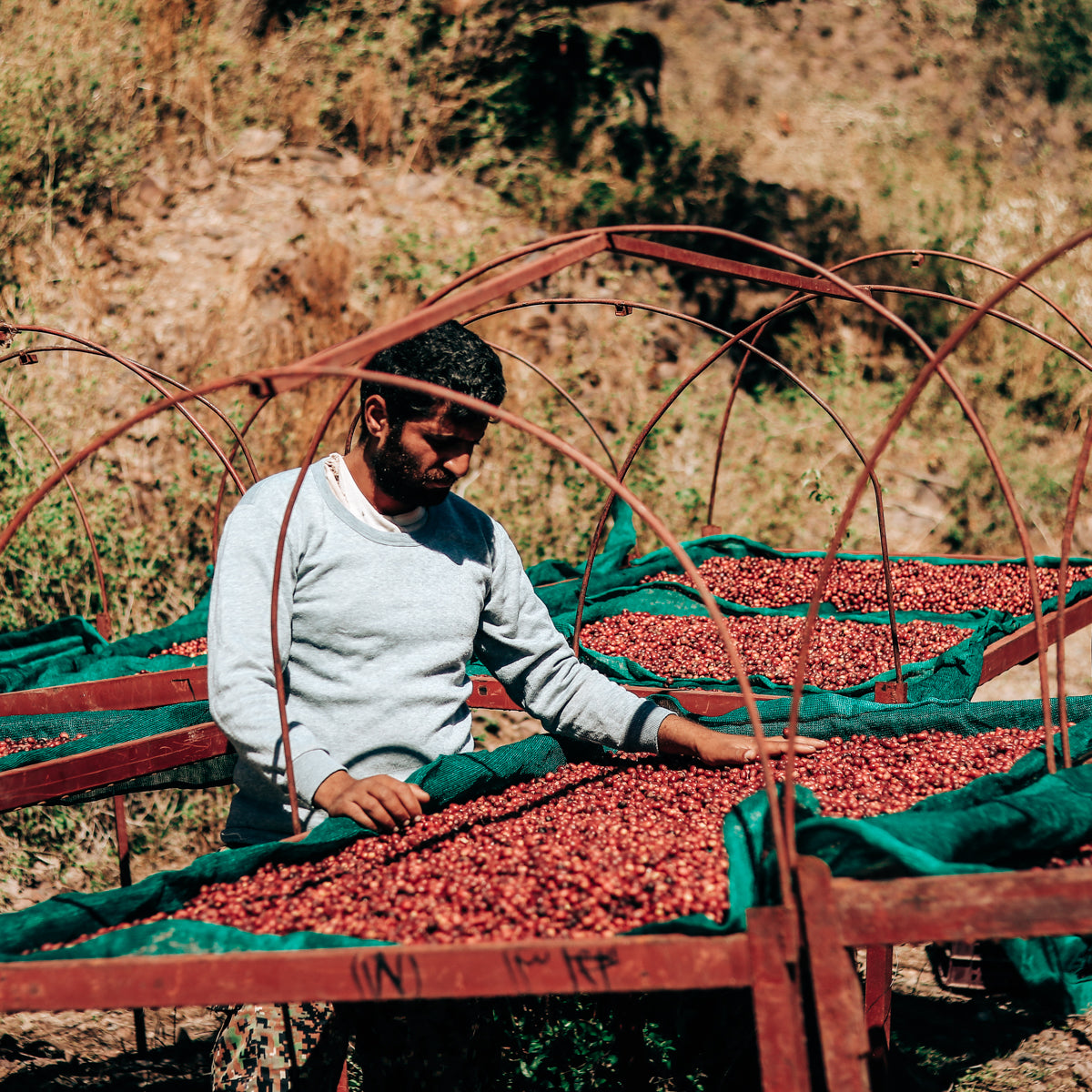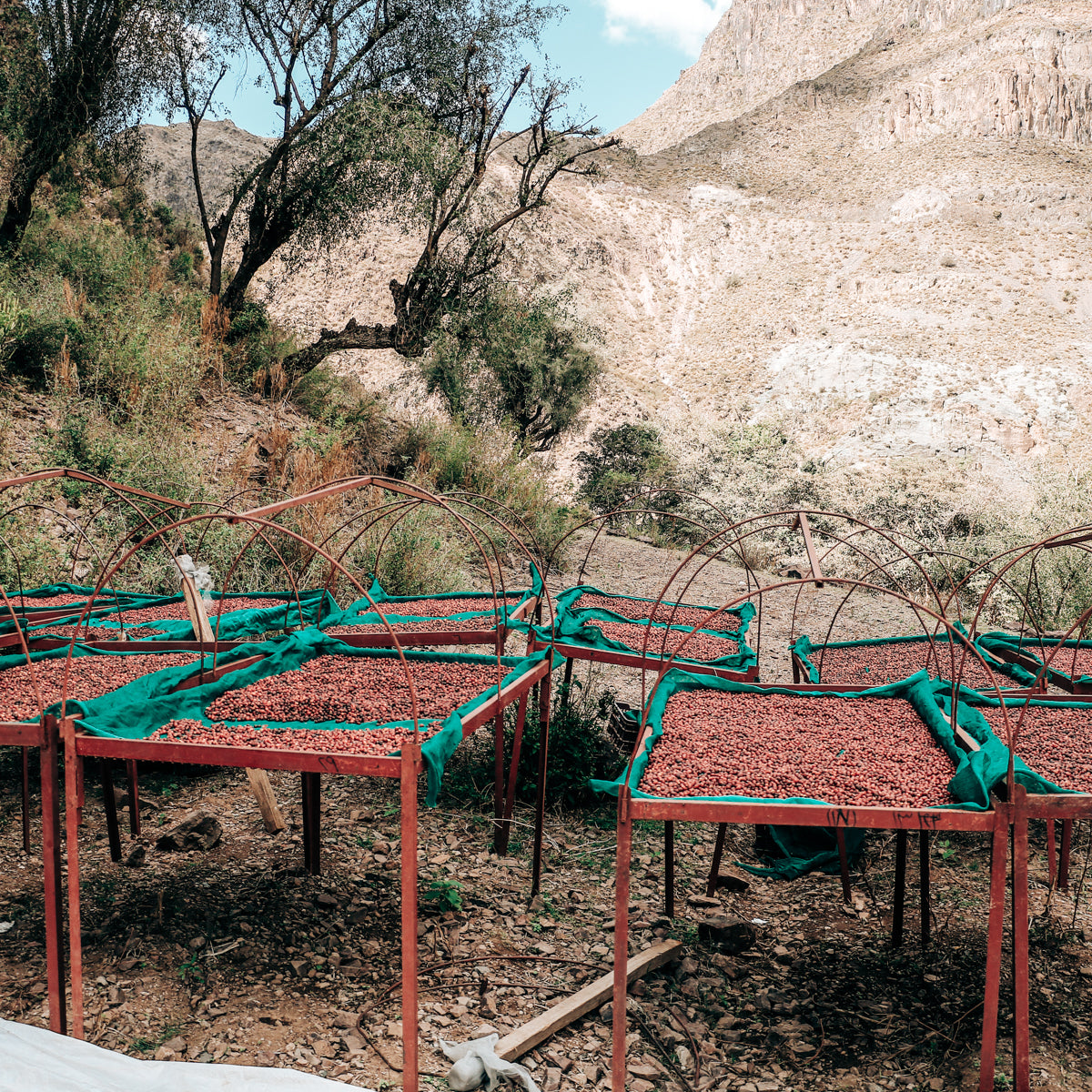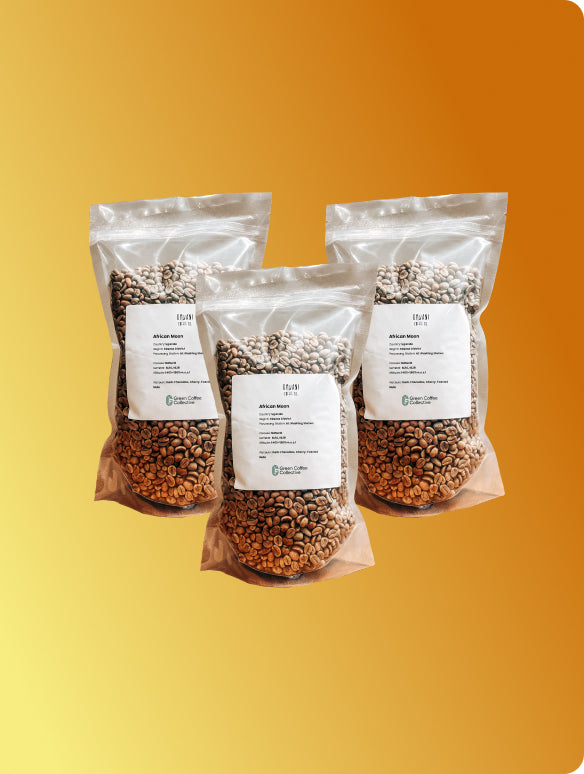
Yemen Green Coffee Beans
Sought after for its limited availability and meticulous processing, our selection of Yemeni green coffee beans is perfect for roasters looking to bring out the unique, nuanced flavours in every cup. We offer both wholesale quantities and smaller batches to meet your specific needs.
-
Al Hayma & Anis Decaf
Cupping Score81.5Processing methodVarietalMultipleMain flavour notesGrape | Raspberry | LemonOut of Stock
Your guide to Yemen Green Coffee Beans
-
What makes Yemeni coffee special?
-
What is the profile of coffee from Yemen?
-
What is our relationship with Yemeni farmers?
-
Discover the Legendary Character of Yemen Green Coffee Beans
-
Why Yemen Green Coffee Beans Are Famous
-
Why Roasters Love Yemen Green Coffee Beans
-
Flavor Profile & Cupping Notes
-
Coffee-Growing Regions of Yemen
-
Varietals & Species
-
Harvest Seasons & Availability
-
Processing Methods in Yemen
-
Notable Varieties of Yemen Green Coffee Beans
-
Usage & Versatility of Yemen Green Coffee Beans
-
Best Brewing Methods for Yemen Green Coffee Beans
-
Quality Standards for Green Coffee Beans in Yemen
-
Sourcing & Traceability
-
Buy 100% High-Quality Yemen Green Coffee Beans













